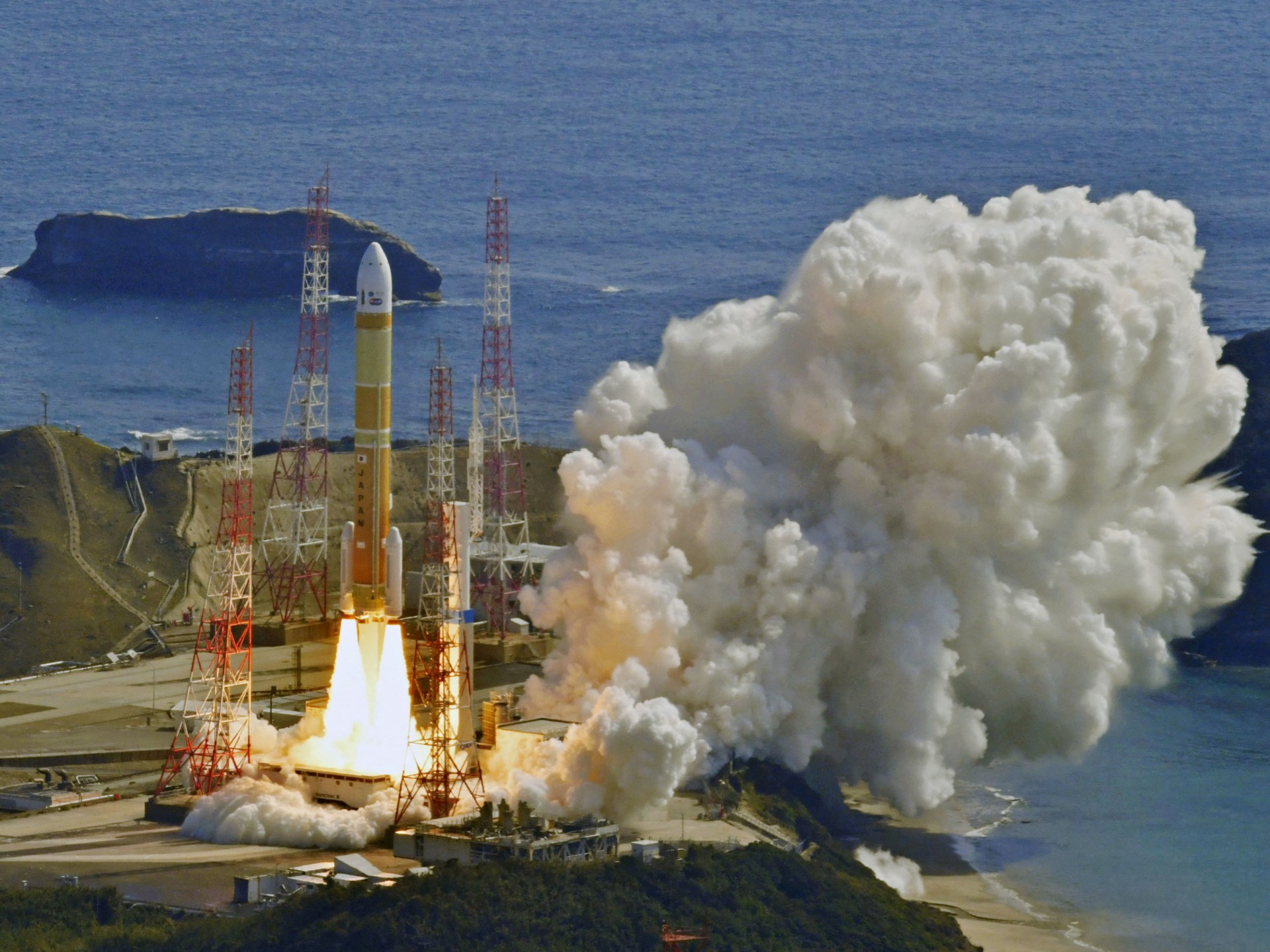Japan’s H3 rocket fails after liftoff in blow to space ambitions | Space News
JAXA intentionally destroys the H3 rocket after the vehicle’s second-stage engine failed to ignite following liftoff.
Japan’s second attempt to launch its next-generation H3 rocket has failed after liftoff, dealing a blow to the country’s space and national security programmes.
The Japanese space agency (JAXA) said it ordered the medium-lift rocket to self-destruct on Tuesday after the vehicle’s second-stage engine failed to ignite moments after liftoff.
The H3’s failure, coming three weeks after an aborted launch due to a separate glitch, was a setback for Japan’s space programme – and possibly for its missile detection programme – and a disappointment for space fans who were rooting for Tuesday’s new attempt.
Video footage of the launch showed clouds of smoke billowing as the 57-metre (187 feet) rocket lifted off without a hitch from the Tanegashima spaceport. But on reaching space, the rocket’s second-stage engine failed to ignite, forcing mission officials to manually destroy the vehicle.
“It was decided the rocket could not complete its mission, so the destruct command was sent,” JAXA said in a statement.
It said the debris would have fallen into the ocean east of the Philippines.
Keiko Nagaoka, the Japanese minister for science and technology, said in a statement that the government had established a task force to investigate the “very regrettable” failure.
Japan built the H3 – its first new series in more than 22 years – to enhance its independent access to space and bolster its chances of capturing a bigger share of the global launch market from rivals, including Elon Musk’s SpaceX. The rocket was carrying an Advanced Land Observation Satellite, tasked primarily with Earth observation and data collection for disaster response and map making, and an experimental infrared sensor designed to detect North Korean ballistic missile launches.
Mitsubishi Heavy Industries (MHI), the company that built the H3, said it was confirming the situation with JAXA.
“Unlike the previous cancellation and postponement, this time it was a complete failure,” said Hirotaka Watanabe, a professor at Osaka University with expertise in space policy.
“This will have a serious impact on Japan’s future space policy, space business and technological competitiveness,” he added.
MHI has estimated that the H3’s cost per launch will be half that of its predecessor, the H-II, helping it win business in a global launch market increasingly dominated by SpaceX’s reusable Falcon 9 rocket.
The Center for Strategic and International Studies, in a report published in September, put the cost of a Falcon 9 launch to low Earth orbit at $2,600 per kilogramme. The equivalent price tag for the H-II is $10,500.
A successful launch on Tuesday would have put the Japanese rocket into space ahead of the planned launch later this year of the European Space Agency’s new lower-cost Ariane 6 vehicle.
Powered by a new simpler, lower-cost engine that includes 3D-printed parts, the H3 is designed to lift government and commercial satellites into Earth orbit and will ferry supplies to the International Space Station.
As part of Japan’s deepening cooperation with the United States in space, it will also eventually carry cargo to the Gateway lunar space station that NASA plans to build as part of its programme to return people to the Moon, including Japanese astronauts.





Pingback: jetsurf cruiser dfi
Pingback: stapelstein
Pingback: click the next web site
Pingback: https://www.eduzones.com/nossl.php?url=https://funnyjoy.de